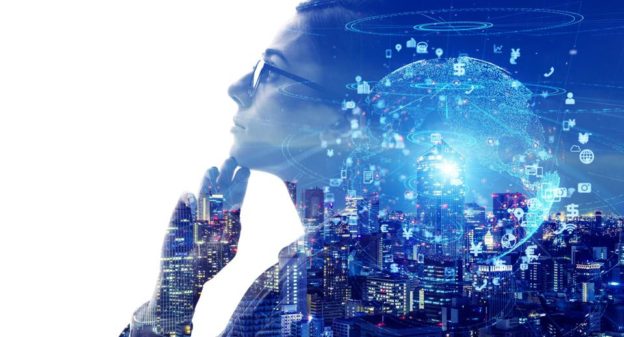As AI continues to evolve and transform the advertising and marketing industry, it is essential for advertisers to address the ethical considerations associated with AI technologies
Artificial intelligence has become a captivating field of study, exploration, and experimentation, generating excitement and curiosity among people. With its advancements and capabilities, AI has the ability to communicate, process vast amounts of data, learn from patterns, and make autonomous decisions. This captivating nature of AI is evident in the powerful tools it has produced, such as ChatGPT, Slack GPT, and GrammarlyGO, showcasing its competence in natural language processing and understanding.
In the realm of advertising and marketing, AI offers major benefits that are transforming the industry. Firstly, AI widens the imagination of marketers by enabling them to explore innovative ideas and concepts. It empowers them to think beyond traditional boundaries and create campaigns that resonate with their target audience. Additionally, AI helps analyse large datasets, extracting valuable insights and enabling data-driven decision-making. Moreover, mundane tasks are streamlined and enhanced through AI, with ChatGPT automating customer support by providing conversational responses, Microsoft Bing’s AI algorithm improving search results and ad targeting, and Slack GPT assisting in generating automated replies and enhancing team communication.
Unveiling the promising horizon of AI in the advertising and marketing landscape:
As AI continues to evolve and transform the advertising and marketing industry, it is essential for advertisers to address the ethical considerations associated with AI technologies. It is crucial to design AI solutions that are transparent, fair, and prioritize user privacy. While there may be concerns about AI replacing human creativity, examples like DALL-E and Midjourney demonstrate that AI can augment human creativity and generate innovative advertising content. However, it is of utmost importance to ensure ethical and responsible AI usage to maintain trust and transparency with consumers. Great ideas come when strong human insights are paired with creative prompts, and AI serves as a powerful tool to amplify human creativity rather than replace it.
Metamorphosis of audience capture:
The advent of AI algorithms has revolutionised the way marketers capture their audience’s attention. By leveraging AI, marketers can analyse user behaviour, preferences, and demographics to create highly targeted and personalised campaigns. Platforms like Facebook and Instagram are leveraging AI to analyse vast amounts of user data, allowing them to display targeted ads based on user interests and behaviours. This level of audience targeting maximises engagement and enhances the overall effectiveness of advertising campaigns.
Elevating the customisation game:
One of the key aspects where AI is revolutionising advertising is through customisation. Personalised product recommendations on e-commerce websites, powered by AI algorithms, have become prime examples of customisation’s role in enhancing the advertising experience. Companies like Amazon and Netflix effectively utilise AI algorithms to recommend products and content to their users based on their preferences and behaviour patterns. This level of customisation enables advertisers to deliver targeted messages that resonate with individual consumers, resulting in higher engagement and conversion rates.
Revolutionising creative boundaries:
Generative AI has emerged as a powerful tool in transforming the creative process of advertising. With AI algorithms becoming more advanced, it is becoming increasingly difficult to discern between real and artificially generated content. Tools like DALL-E, developed by OpenAI, can generate realistic images from text descriptions, pushing the boundaries of what AI can create. Midjourney, another AI-based project, showcases AI-generated art that challenges traditional notions of creativity. These examples highlight how generative AI is revolutionising the creative process in advertising, allowing marketers to explore new realms of innovative ideas and create visually stunning and captivating content.
In conclusion, AI has brought about a revolution in the advertising and marketing industry, unleashing new levels of creativity and personalisation. From widening imagination and automating mundane tasks to capturing audiences with highly targeted campaigns, AI is reshaping the advertising landscape. Generative AI, in particular, is pushing the boundaries of creativity, enabling marketers to explore uncharted territories and create visually stunning content. However, it is imperative that ethical considerations are prioritised to ensure responsible AI usage. As we navigate the future of advertising, the harmonious partnership between human insights and AI capabilities will continue to drive innovation and deliver exceptional advertising experiences.
https://www.financialexpress.com/business/brandwagon-how-generative-ai-is-revolutionising-advertising-unleashing-creativity-and-personalisation-3151452/





